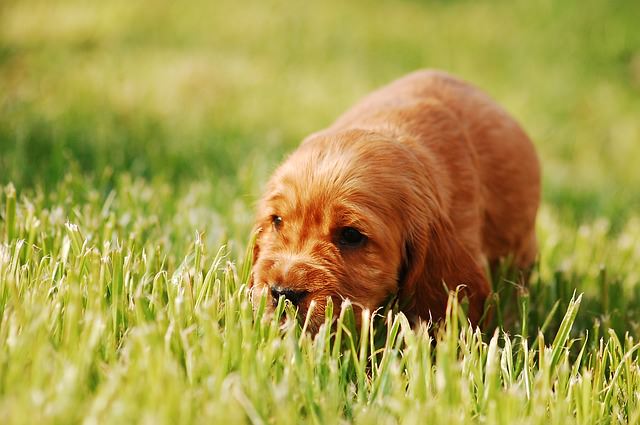Dogs eat poop for many reasons, and some of these reasons are unknown. It is a disgusting habit in the eyes of human caregivers. In order to try and figure out why a specific dog is engaging in coprophagia (ingesting feces), it is first important to know which poop he’s eating.
The most important thing to know is that coprophagia is considered normal behavior (although gross) in canines. Some people have examined possible causes to try to find ways to mitigate the behavior.

Eating feces of other species
Many dogs will raid the cat box for samples of cat feces. Since cats are obligate carnivores (meat eaters), they have a decreased ability to digest certain things, especially carbohydrates. The dog might be able to sense or smell these partially digested components and think that the fecal matter is still a food item (although it is isn’t a good source of nutrients).
Eating feces of pups
A canine mother (dam) will ingest the feces of her pups as a survival response. She knows that poor hygiene will flag her den to predators, so she cleans up in the only way she knows. This is a normal maternal behavior.

Eating his own fecal matter
Owners sometimes think that this bad practice is related to a vitamin deficiency, but a study published in American Journal of Veterinary Research in 1981 showed that deficiency had to be profound before the dogs exhibited coprophagy. Deficiencies this severe would be seldom seen in pet dogs. Most animal experts recognize feces eating as normal behavior, often outgrown by adulthood.
There are food additives that are purported to create an aversion to the taste of stool, but can only work if the dog is eating her own dog poop or the dog poop of a housemate whose diet is controlled. If she finds an untreated stool, the dog is rewarded again and the program must be restarted. An article in Canadian Veterinary Journal suggests a comfortable muzzle be applied to the dog whenever she is outside unattended or keeping her only on a leash and training her to defecate on command so feces can always be removed. All methods will require commitment on the part of the owner because this routine is likely well established and is self-rewarding in any lapse.

As always, a balanced diet is a good idea just to be sure there is no vitamin deficiency. Because we know that partially digested carbohydrates in feline feces may be an attractant, it might be wise to be sure there are no excessive carbohydrates in your dog’s diet in case of a similar attraction.
No matter whose dog poop your dog is eating, you probably would prefer she stop. If you want to train your dog to drop this habit, you have to completely prevent it from ever happening. Whatever the motivation, the stool itself has become the reward. It may take a long time to extinguish the behavior, maybe weeks or months. You can feel better knowing that these seems to be little health risk for dogs engaging in this routine or underlying disease process.
